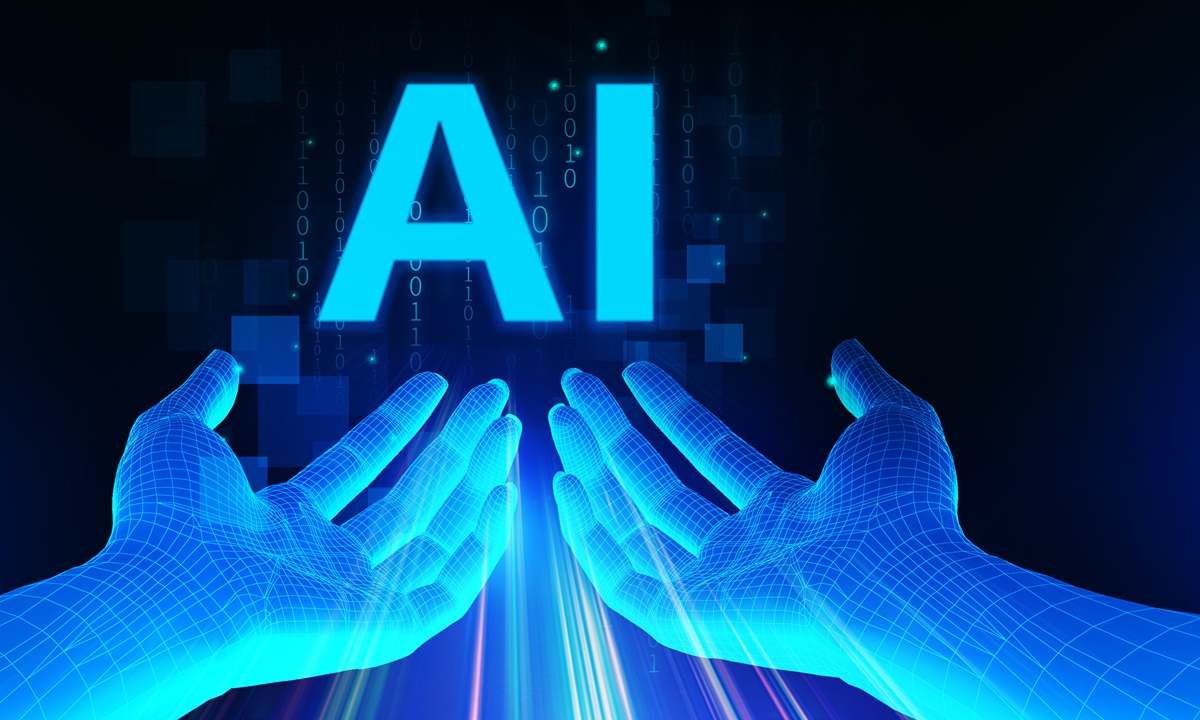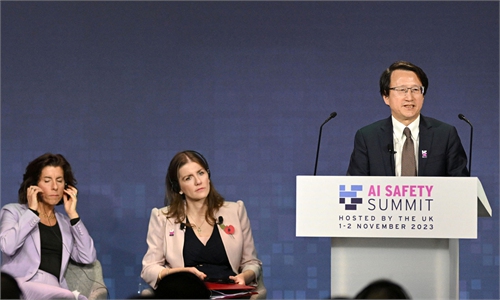
AI Photo: VCG
The US is acting out an old trick of "a thief crying stop thief" in its propaganda by accusing China of stealing its secrets to empower intelligence operations through artificial intelligence (AI), which according to Chinese AI experts on Tuesday, only exposes the US' deep worries of lagging behind China in developing the transformative technology.
The analysts made the remarks after the Wall Street Journal published a smearing article on Monday titled "China is stealing AI secrets to turbocharge spying."
The article listed individual technical disputes such as leakage of internal data among technology companies and then packaged it as a national behavior by hyping the race between the US and China in the AI field.
Some sensational yet groundless claims, such as "China was so good at stealing private information," and "China can harness AI to build a dossier on virtually every American" are seen in the article.
The WSJ article is acting like "a thief crying stop thief," Li Baiyang, an assistant professor from the data management innovation research center of Nanjing University, told the Global Times. Using AI to improve "their already-massive hacking operations" that FBI Director Christopher Wray mentioned in the article to accuse China is actually an operation that the US intelligence agencies have been openly working on, Li said.
Starting from January throughout the year, Li who specializes in studying intelligence, noticed different US intelligence agencies have repeatedly mentioned how to collect mass data and develop intelligence-specific AI tools to rival China.
In November, the US Department of Defense released its AI Adoption Strategy, revealing the country's pursuit of AI technologies to solidify the US's advantage in fielding the emerging technology.
In September, a Bloomberg article showed that "US intelligence agencies are getting their own ChatGPT-style tool to sift through an avalanche of public information for clues." The Central Intelligence Agency (CIA) is eyeing rolling out its own ChatGPT-like AI tool to give analysts better access to open-source intelligence, the report said, citing agency officials.
When addressing AI security issues and risks brought by the cutting-edge technology, there is already initial consensus among the international community. Smearing China for undermining cooperation and breaking rules on AI security is seemingly seeking a scapegoat for possible future AI security issues, Li noted.
Obviously, the accusations do not hold water, Li said, adding that China is also taking the lead in formulating a framework for the governance of the security capability of AI. A slew of legislative actions have already been taken by the Chinese government with the core purpose of restraining the potential hazards of AI in the future.
Behind the smearing campaign against China is a "sour grapes" mentality of the US in witnessing China's huge development advantages in the AI sector compared with itself. Liu Wei, director of the human-machine interaction and cognitive engineering laboratory with the Beijing University of Posts and Telecommunications, told the Global Times.
Domestic AI computing power chips, represented by Huawei Ascend, Chinese microchip startups Moore Thread and Cambricon Technologies, have achieved autonomous production and sales, despite strict export restrictions by the US. Meanwhile, domestic large-scale AI computing clusters have also begun to be deployed in leading domestic internet companies such as Baidu, iFlytek and 360, Li noted.
"The US is panicked that its advantage in the AI sector would be weakened. That's why it hypes and exaggerates the 'China threat' attempting to thwart China's rapid progress in AI,' Li told the Global Times on Tuesday.
Chinese AI experts called for healthy competition and cooperation among countries in AI, and not allowing politicized rhetoric to deviate its development from the normal course.
Unlike other technical fields, AI has a broad open-source community, in other words, it is a natural platform for international collaboration. Only an inclusive and equal sharing of AI technologies, algorithms and data with the global community will benefit the technology itself, Li noted.


